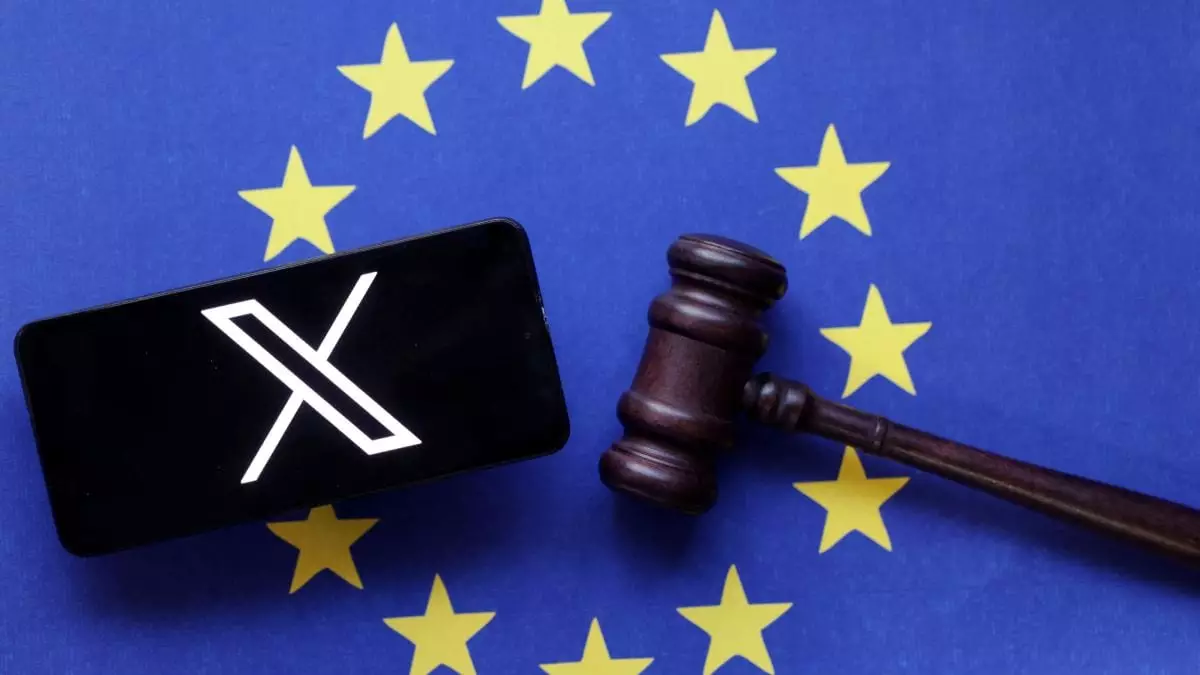The scrutiny directed towards Elon Musk’s social media platform, X, by the European Union (EU) marks a significant moment in the dialogue surrounding digital governance and content moderation. With the EU’s Digital Services Act (DSA) now in focus, it becomes imperative to examine how this investigation not only reflects the regulatory challenges faced by major technology platforms but also signals a broader shift in the EU’s approach to online content management and transparency.
The European Commission initiated formal proceedings against X in December 2023, citing allegations of the platform’s failure to effectively manage illegal content and misinformation. Henna Virkkunen, the Commission’s Executive Vice President, recently indicated an expanded scope for this investigation, revealing concerns over X’s adherence to transparency requirements and the potential for deceptive design practices. The emergence of such preliminary findings raises substantial questions regarding Musk’s management of the platform following his acquisition.
Moreover, the context of Musk’s recent endorsements of right-leaning political figures has explicitly intensified the investigation. A prime example includes a live-streamed engagement with Alice Weidel, a candidate from the far-right Alternative for Germany party. This scenario raises alarms about potential biases in platform algorithms that may unjustly favor certain political candidates, a serious concern under the DSA guidelines.
The stakes are exceptionally high due to recent incidents of foreign interference in European elections. The annulment of Romania’s presidential election due to alleged Russian interference underlines the urgency for stricter compliance mechanisms for social media platforms. The EU’s decision to probe TikTok for similar reasons indicates a broader strategy to hold digital platforms accountable for their role in information dissemination and political integrity.
With the rise of alleged disinformation campaigns, the EU appears poised to tighten regulations and ensure digital platforms act responsibly. The penalties for non-compliance, which could extend up to six percent of a company’s global revenue, underscore the serious commercial implications for Musk’s X if found guilty of violating regulations.
The Reaction from Big Tech and Political Leaders
As the investigation progresses, the response from prominent figures in the tech industry cannot be overlooked. Musk’s tumultuous relationship with EU regulators is emblematic of a larger struggle between tech giants and European oversight. His public declaration to contest any unfavorable DSA ruling in court demonstrates a growing trend among tech leaders to resist external regulatory efforts that they perceive as overreach.
Mark Zuckerberg’s recent remarks echo this sentiment. By equating the regulatory pressures facing U.S. technology firms with a form of “tariff,” he articulates a concern that the EU’s actions could hinder domestic innovation and competitiveness. This pushback comes at a critical juncture, as President-elect Donald Trump also weighs in on the discourse, characterizing potential conflicts with EU standards as matters of national interest.
The EU’s inquiry into X exemplifies a pivotal intersection of digital policy and international politics. As lawmakers attempt to enforce standards designed to protect democratic processes while nurturing innovation, the complexities inherent in regulating highly influential social media platforms are becoming increasingly evident.
Musk’s situation serves not only as a case study of the tensions between young tech companies and established regulators but also as a reflection of the political climate surrounding tech in the United States and Europe. The outcome of this investigation may set important precedents for how digital platforms operate in foreign markets, how they navigate political affiliations, and the evolving dynamics between tech and governance.
As the digital landscape continues to shift, it remains crucial for all stakeholders—governments, citizens, and corporations— to engage in a constructive dialogue that prioritizes transparency, accountability, and the protection of democratic values against the backdrop of rapidly changing technology.

